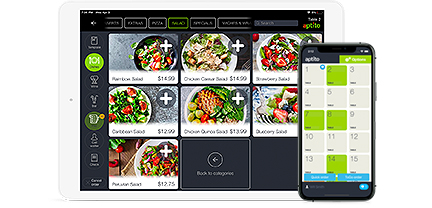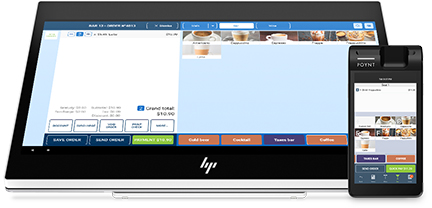How is POS Different From My Accounting Software?3 min read
While it’s not yet the most prevalently discussed element pertaining to POS software, it’s important for all users to understand that every POS system will offer users a different level of accounting, e commerce, business management along with a variety of degrees of integration of it all which will ultimately have a significant effect on the success of your business.
Integrated vs Interfaced
Any worthwhile discussion over POS software options should include the distinction that exists between the terms “integrated” and “interfaced. While these terms are often used as though they are interchangeable, there are real differences between the two types of products that are currently offered. If you are in the market to get onboard the POS revolution, it’s important that you first determine the exact needs of your business. Do you want a POS system that comes with fully integrated accounting that has been built into the software, or do you prefer to work with a QuickBooks and Peachtree.
Know the Subtle Differences
While any distinctions between the two types of accounting approaches are subtle, they exist, nonetheless, and it’s important to differentiate between the two, in order to best match the specific needs of your company’s operation. First of all, in the wide world of software, what’s known as integrated modules rely upon the dame3 data files, while info is updated in real time. Maximum integrity is achieved through the consistent data preservation across all modules. This also prevents wasting time and the possibility of double-entries. Interfaced modules, on the other hand, use software with established protocols that can effectively translate and then transfer data back and forth. Most of these interfaces are designed to communicate with third party programs. The only downside considerations are that an interface requires manual manipulation, and it does not occur in real-time. While this issue is not one that can be easily or expediently addressed, hopefully what you are now reading will inspire you to intensify your investigation to determine the plan that will best suit your needs.
Built-in or Integrated Accounting’s Advantages
Probably one of the most distinct advantages to having an integrated accounting system come from the benefit of immediate updates in real-time. This means all transactions are posted just as soon as they are made. And then, such a system will only require you to learn and use one program. Your POS system will automatically be updated and will support a new version of your accounting software. Another (dreaded but helpful) benefit is that if you ever are the target of an audit from the sales tax authorities, referencing the particulars will be seamless.
Go Deeper than Face Value
Remember that all POS systems work differently; whether interfacing or integrated. Literature that claims “integration” isn’t always necessarily so. And occasionally, information will need to be entered by hand. Make sure you inquire with the POS seller about this.
Avoid Unnecessary Issues
Ultimately, choose a POS accounting software that bears a proven track record among known entities. The last thing you want is problems from pirate-type software.



